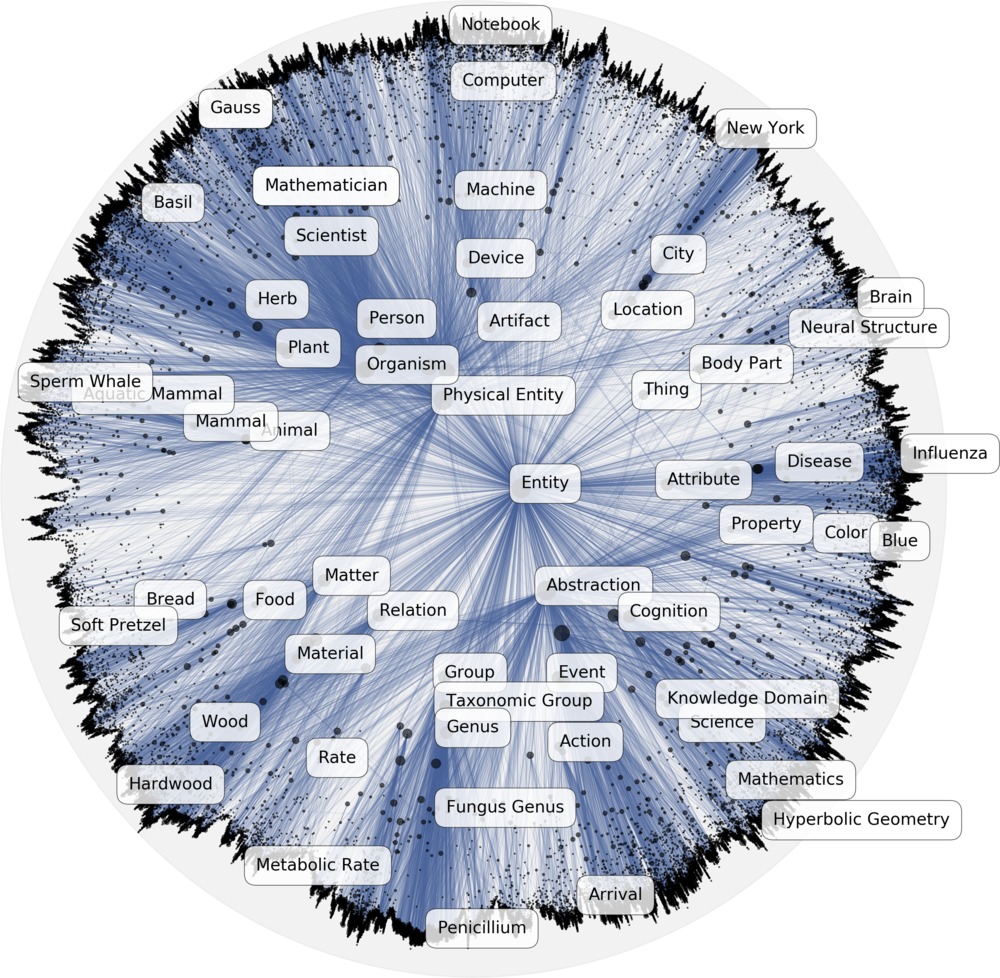PyTorch implementation of Poincaré Embeddings for Learning Hierarchical Representations
To embed the transitive closure of the WordNet mammals subtree, first generate the data via
cd wordnet
makeThis will generate the transitive closure of the full noun hierarchy as well as of the mammals subtree of WordNet.
To embed the mammals subtree in the reconstruction setting (i.e., without missing data), go to the root directory of the project and run
NTHREADS=2 ./train-mammals.shThis shell script includes the appropriate parameter settings for the mammals subtree and saves the trained model as mammals.pth.
An identical script to learn embeddings of the entire noun hierarchy is located at train-nouns.sh. This script contains the hyperparameter setting to reproduce the results for 10-dimensional embeddings of (Nickel & Kiela, 2017). The hyperparameter setting to reproduce the MAP results are provided as comments in the script.
The embeddings are trained via multithreaded async SGD. In the example above, the number of threads is set to a conservative setting (NHTREADS=2) which should run well even on smaller machines. On machines with many cores, increase NTHREADS for faster convergence.
Simply clone this repository via
git clone https://github.com/facebookresearch/poincare-embeddings.git
cd poincare-embeddings- Python 3 with NumPy
- PyTorch
- Scikit-Learn
- NLTK (to generate the WordNet data)
If you find this code useful for your research, please cite the following paper in your publication:
@incollection{nickel2017poincare,
title = {Poincar\'{e} Embeddings for Learning Hierarchical Representations},
author = {Nickel, Maximilian and Kiela, Douwe},
booktitle = {Advances in Neural Information Processing Systems 30},
editor = {I. Guyon and U. V. Luxburg and S. Bengio and H. Wallach and R. Fergus and S. Vishwanathan and R. Garnett},
pages = {6341--6350},
year = {2017},
publisher = {Curran Associates, Inc.},
url = {http://papers.nips.cc/paper/7213-poincare-embeddings-for-learning-hierarchical-representations.pdf}
}This code is licensed under CC-BY-NC 4.0.

